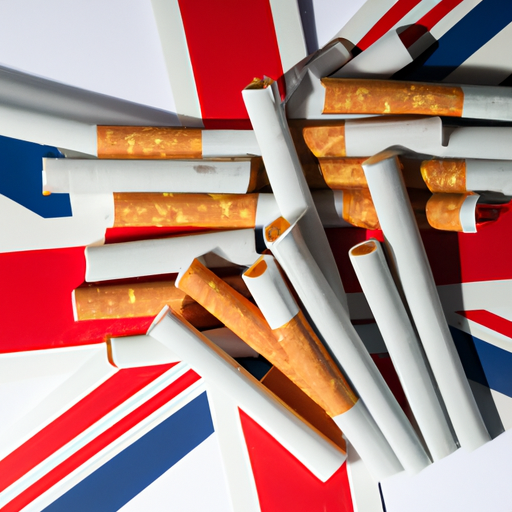
As a resident of the United Kingdom, cigarettes have always been a part of my daily life. From seeing advertisements for them on television to smelling their distinct aroma in public places, cigarettes seem to be everywhere. Despite their prevalence, I have recently become more aware of the negative impact they have on both individuals and society as a whole. In this article, I will delve into the world of cigarettes and explore their history, current policies and effects on health, economy, and the environment in the UK.
The history of cigarettes in the UK can be traced back to the late 1500s, when tobacco was first introduced to the country by Sir John Hawkins, an English sailor. Initially, it was seen as a luxury item, only available to the wealthy. However, in the 19th century, the tobacco industry began to grow rapidly, with the introduction of mass production and the invention of the machine-rolled cigarette. This led to a sharp increase in consumption, making cigarettes accessible to people of all social classes.
Despite the health risks associated with smoking, cigarettes remained popular throughout the 20th century. In the 1950s, the first scientific studies linking smoking to lung cancer were published, causing concern among the public. However, it wasn’t until the 1960s that the UK government began to take action. In 1965, the government passed the first law requiring warning labels on cigarette packages. In 1971, the government decided to ban cigarette advertising on television and radio, following the US’s lead. These measures were a step in the right direction, but cigarettes continued to be widely available and socially accepted.
It wasn’t until the 21st century that the UK government took more significant steps to reduce smoking rates. In 2003, a comprehensive ban on smoking in all workplaces, including restaurants, pubs, and clubs, was introduced. This was followed by a ban on smoking in cars with children present in 2015. In addition, the government increased taxes on cigarettes, making them more expensive and less accessible to young people. These policies, coupled with public health campaigns and smoking cessation programs, have contributed to a decline in smoking rates in the UK.
Despite the efforts to reduce smoking, it remains a prevalent habit in the UK. According to the Office for National Statistics, in 2018, 14.4% of adults in the UK were smokers, with the highest rates among those aged 25-34. This is concerning as smoking remains the leading cause of preventable death in the UK, with 78,000 deaths attributed to smoking each year. In addition, smoking is linked to a range of health issues, including lung cancer, heart disease, and respiratory problems.
Not only does smoking have a direct impact on individuals’ health, but it also has a significant economic impact on the UK. The National Health Service (NHS) estimates that smoking-related illnesses cost the UK economy £12.6 billion per year, with an additional £11 billion spent on social care for those with smoking-related illnesses. Furthermore, smoking results in lost productivity, as smokers are more likely to have health issues and take sick leave. The cost to the UK economy and the burden on the NHS could be significantly reduced if smoking rates continue to decline.
In addition to health and economic impacts, smoking also has severe consequences for the environment. Cigarette butts are the most frequently littered item worldwide and are found in oceans, lakes, and rivers. They are not biodegradable and can take up to 12 years to break down. Cigarette smoke also contributes to air pollution, which has adverse effects on both the environment and human health. Moreover, the production of cigarettes requires vast amounts of energy and resources, contributing to climate change.
Despite the negative impacts of smoking, it is still heavily ingrained in UK culture. The smoking ban in public places has reduced the number of smokers seen in public, but it is still a widespread habit, particularly among young people. The tobacco industry continues to promote their products through advertising and sponsorship, and many young people see smoking as a rebellious and cool thing to do.
In conclusion, cigarettes have had a long and complex history in the UK, from being a symbol of luxury to a widespread habit with severe consequences. While the government has taken measures to reduce smoking rates, there is still much work to be done. It is essential to continue educating the public about the dangers of smoking and the impact it has on both individuals and society. By working together to create a smoke-free environment, we can improve the health, economy, and environment of the UK for future generations.